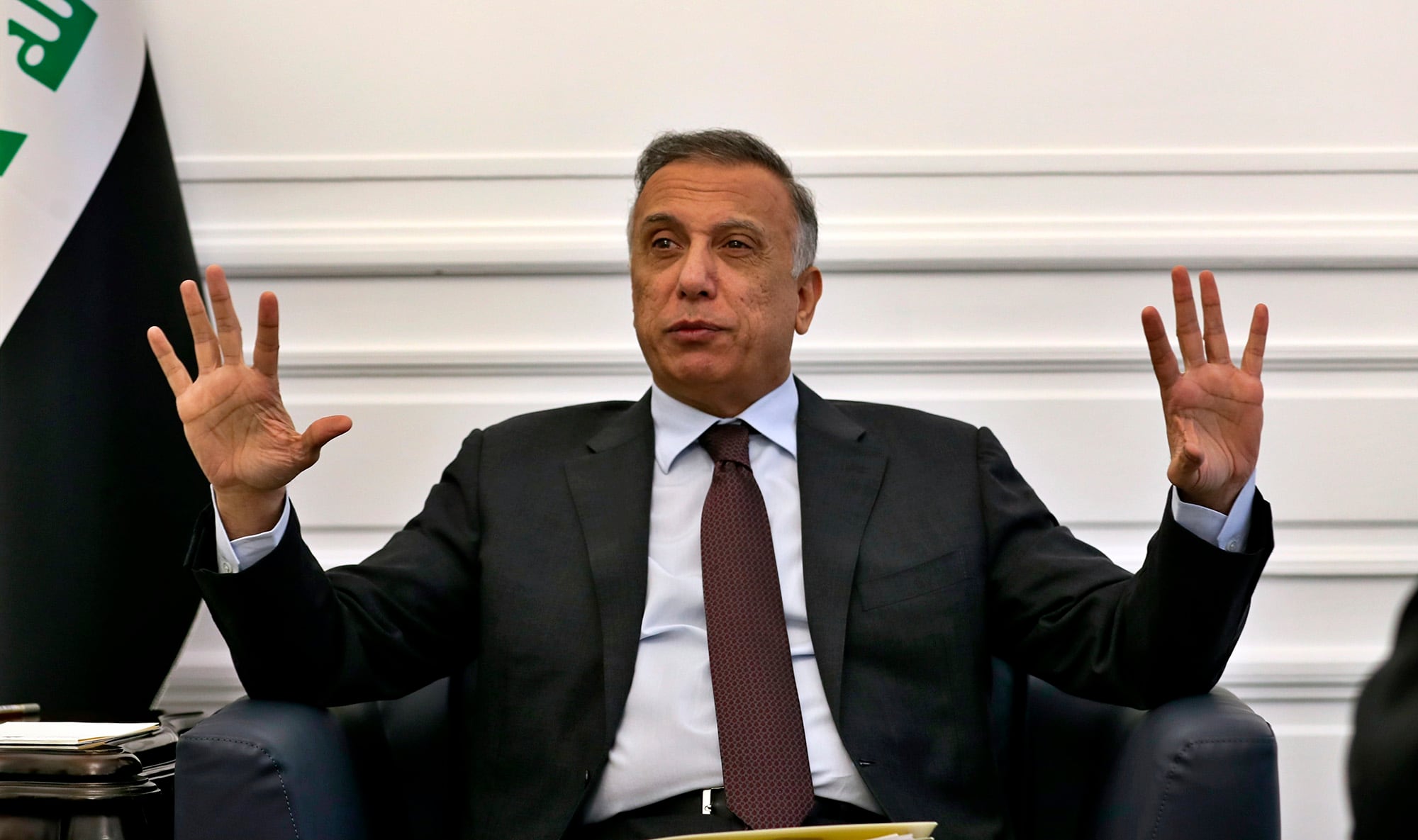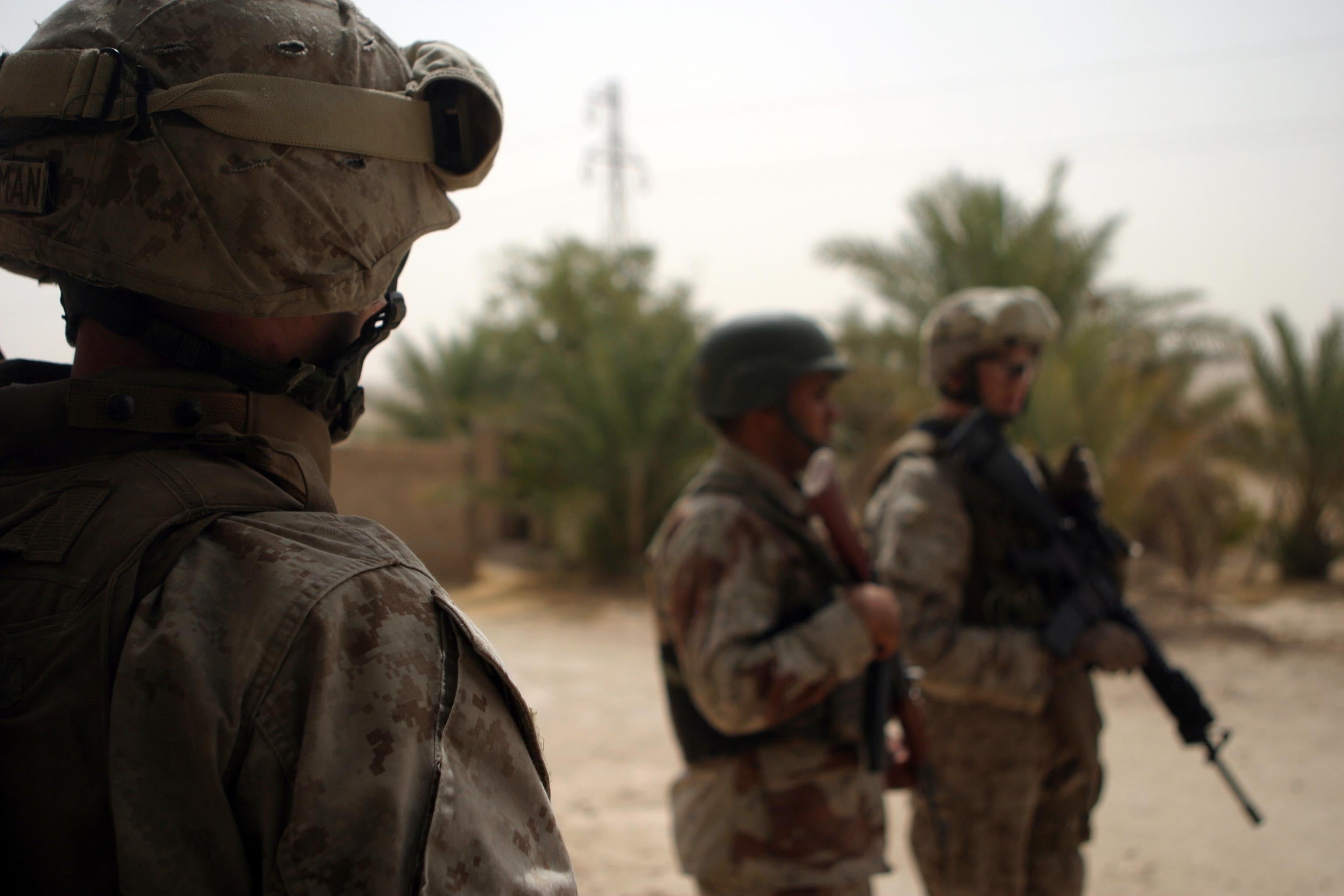President Donald Trump vowed that U.S. troops in Iraq will be “leaving shortly” but without compromising American national security interests in the region during a meeting with the country’s prime minister at the White House on Thursday.
Trump’s comments came a day after senior administration officials said that specific troop withdrawal timelines would not be discussed in the talks with Iraqi Prime Minister Mustafa al-Kadhimi, who is making his first trip to the White House this week.
“We’re helping where we can,” Trump said in response to reporters’ questions about the continued U.S. military presence in Iraq. “But it’s a separate country. They have a prime minister. They have people in office. They have to run their country. We’ve been in Iraq for a long time.
“Frankly, I didn’t think (the Iraq War) was a good idea … Now we’re getting out, we’ll be leaving shortly.”
When pressed for a specific timeline, Trump deferred to Secretary of State Mike Pompeo, who said all of the troops will leave “as soon as we complete the mission. The president has made it clear he wants forces down to the lowest level as quickly as they can. That’s the vision he has given us, and we’re working with the Iraqis to achieve that.”
About 5,000 U.S. military personnel are currently stationed in Iraq, performing training and support roles.
Last month, the top U.S. general for the Middle East said he believed the U.S. will keep a smaller but enduring presence in the country. Marine Gen. Frank McKenzie, the commander of U.S. Central Command, said he believes the Iraqis welcome the U.S. and coalition troops, especially in the ongoing fight to keep Islamic State fighters from taking hold of the country again.
McKenzie has not said how many U.S. troops might stay. But he said Iraqi conventional forces now operate on their own. U.S. and coalition forces continue to conduct training and counterterrorism operations, including with Iraqi commandos. Any final decisions, he said, would be coordinated with the Iraqi government.
Earlier on Thursday, the White House issued a statement of support for “long-term security cooperation” between the two nations, noting that “we continue to work in close coordination to ensure that (the Islamic State group) is rendered incapable of posing a threat to Iraq and every other nation.”
RELATED

Before his election and early in his presidency, Trump attacked former President Barack Obama for signaling troop withdrawals from overseas hot spots, saying it helped enemy forces and hurt foriegn allies.
But in recent months, Trump has begun offering his own plans for pulling back troops. On Thursday, he reiterated his proposal from earlier this month to cut in half the number of U.S. troops in Afghanistan by November.
The U.S. president also said he is confident the moves can be made without jeopardizing American security.
RELATED

“We deal with (our enemies) when there are attacks,” he said. “We take care of them easily. Nobody has the weaponry we have. We have the finest of everything. We have the finest, greatest military in the world. When somebody hits us, we hit back harder than they hit us.”
But Trump lashed out at a question on whether he has done enough to react to reports of Russian officials offering bounties on U.S. troops serving in Afghanistan, and whether that undermined his promises of prompt military response.
“If we found out that would be true, if we found out that was a fact, we would hit them so hard your head would spin,” he said.
Information from the Associated Press contributed to this report.
Leo covers Congress, Veterans Affairs and the White House for Military Times. He has covered Washington, D.C. since 2004, focusing on military personnel and veterans policies. His work has earned numerous honors, including a 2009 Polk award, a 2010 National Headliner Award, the IAVA Leadership in Journalism award and the VFW News Media award.





